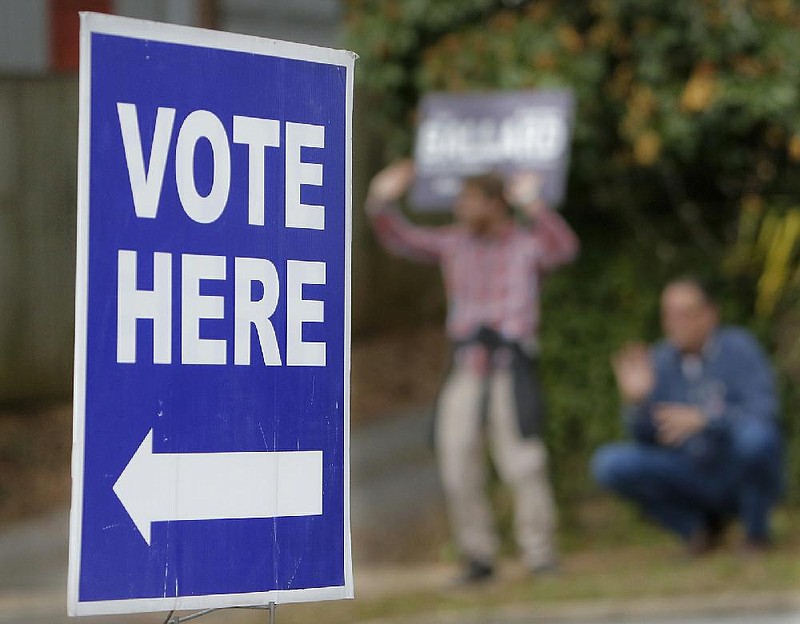North Little Rock will continue to have a "half-penny" sales tax supporting capital improvements for the next five years.
Residents on Tuesday approved a tax city leaders describe as a "continuation" of the current one-half percent sales tax. In 2017, voters approved the "half-penny" tax that helped fund the city's $26 million justice center. The current one-half percent sales tax expires at the end of the year.
The tax continuation is estimated to bring in about $45 million in revenue for the city over five years and will end in December 2027, according to North Little Rock Chief Financial Officer Ember Strange. The city plans to put the tax revenue toward parks and recreation, public maintenance and police and fire, North Little Rock Mayor Terry Hartwick said.
Mayor Hartwick also said up to 40% of the tax revenue will come from nonresident taxpayers who make purchases in the city. He added that the half-cent tax costs the average resident about $5 per year.
Complete but unofficial results are:
For1,614
Against588
Derrell Hartwick, the president and CEO of the North Little Rock Chamber of Commerce, said on Tuesday night his organization is "very excited" to see the results.
The chamber's board of directors voted to support the tax and led the referendum's organized support, he said. Ahead of the election, the chamber purchased television advertisements and mailers to spread awareness.
He said the chamber's campaign slogan was "Promises Kept, Promises Made."
"We planned it out. We showed what we wanted to do with all this money," he said. "We'll be able to improve our city and stick to what we said. We want to be able to improve our fire stations, our parks, our public maintenance."
With the tax approved, $18 million will go to the Parks and Recreation Department to enhance North Little Rock's community centers, Mayor Hartwick told the Democrat-Gazette. Each will receive upgrades such as new showers and basketball courts, as well as computers and internet access.
The city will put about $15 million toward facility upgrades for the North Little Rock Fire Department. Revenue will help rebuild the Central station and renovate others throughout the city.
With $10 million, the city will make improvements to streets, sidewalks and drainage infrastructure. Mayor Hartwick said the city will allocate $2.5 million to each of the city's four wards. The additional $2 million will go toward purchasing new public safety vehicles.
The projects funded by the tax revenue will directly affect economic growth in the city, Derrell Hartwick said. Businesses visiting the city love to see community investment in public works.
"Obviously, we'll continue to help our schools, and our roads, and making sure that we're competing with every city in the state," he said. "Making sure that North Little Rock is up there and doing the best we can for our community, and our members and our businesses."
Residents who opposed the tax said the city hasn't made many improvements following tax referendums in the past. John Hawley, for example, voted against the tax Thursday and said the city hasn't done much to fix roads with the funds from 2017's half-cent tax.
"I figured that giving them extra money, which they're not going to use in the proper way, is not the right way to go about it," Hawley said Thursday.
Kenny Wallis, a North Little Rock resident who has organized campaigns against multiple tax referendums in the city, said on Tuesday night the results are what he expected to see in a special election with "extremely low" turnout.
Wallis said he hopes the next legislative session will ban special election tax increases, which he said are often scheduled when people aren't paying attention. He said the Republican Party of Arkansas should reform itself to fight these tax increases during special elections.
Wallis said he expects to see city leaders give themselves pay raises and fund "pet projects" with the tax revenue. However, he also said the city will likely make improvements for police and fire that have been "neglected for years."
"We need cities, in general, to focus more on police and fire and streets and not on pet projects," Wallis said. "We need to make that a priority."
